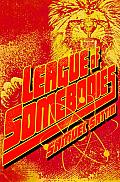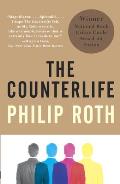
My first attempt at writing a novel was done from a small, damp-walled apartment I was renting in Santiago, Chile, during the election of Michelle Bachelet. The country was abuzz with the prospect of electing its first female prime minister, a sensation that was hampered only briefly by a spat with Peru over maritime borders and occasional tirades by my alcoholic flatmate as he stumbled nightly across the living room floor in tears.
I'd come to the conclusion by that point in my life — the ripe old age of 23, it might be said — that I was going to make a serious go at becoming a novelist. I was abroad, anyway, and fashionably so, attempting to, like many who don't have something original to say but would like to, use my travels as a substitute for good content. The books I read and cherished over the years appeared so close to me, so easy to touch. Like most idiots, I saw the mountain from far away and said to myself, It doesn't look so high. I could get to the peak in 24 hours. But by the time I actually got to base camp, I realized I was wheezy, overweight, and riddled with shin splints. Oh, and I didn't know the last fucking thing about climbing a goddamn mountain.
I still decided to give it a try, however. I surmised, I suppose correctly, that I should put myself on a vigorous schedule of writing every day, at least to get the ball rolling. Six hours each afternoon before I went to teach my English courses. In retrospect, this was probably a smart decision. I ate healthy. I walked a lot. Spurts of awkwardly executed push-ups on the hardwood floor kept my body knotty and lean. Occasionally I'd take a bus across the country to Valparaiso, where I'd frequent the fish markets and retreat into a cheap hotel to attend to my ancient HP. I thought I was a serious man, you see, one of those soon-to-break-out talents, ready to be welcomed back to a groveling America as if it had been embarrassed to let me go in the first place.
What I used as a model for drafting my first book was Philip Roth's The Counterlife. It's still my favorite work of his, anyway, a complex and thrilling triptych that troubles the mind, misplaces familial relationships, and strangles popular ideas of narrative. My novel, which was called, pathetically, Where Is Henry Crag?, went right for the jugular, copying scene for scene what Roth had so maniacally crafted without any of the study, psychology, or foresight that gave him the tools to do so.
 When I finally finished the monstrosity, I gave it to a local friend to read. He was a poet with a drinking problem and a sternum that protruded from his chest, a birth defect that made his shirtless upper body, at certain angles, look exoskeletal. He might not have been the best poet in the world, but he was older than me by a good few years, he was an aging expat, and, like many poets, he knew a thing or two about books.
When I finally finished the monstrosity, I gave it to a local friend to read. He was a poet with a drinking problem and a sternum that protruded from his chest, a birth defect that made his shirtless upper body, at certain angles, look exoskeletal. He might not have been the best poet in the world, but he was older than me by a good few years, he was an aging expat, and, like many poets, he knew a thing or two about books.
Well, it didn't take much time for him to decide what had to be done, explaining that the world I was creating was flat, populated with countries that puddled into mush and characters without faces or even bodies. It was poorly imagined artifice smashed together with duct tape and belly-button lint. A juvenile, slapdash performance.
In the years that would come, I'd learn this lesson again and again, each time harder than the next. The key to getting better, I think, was learning that you can't do much that will make you more interesting than you already are. My years of travel, while opening me up to new experiences and teaching me much about how other people live, didn't end up holding a candle to what I found inside myself — what I found inside my family, my childhood nightmares, and my mother's terrible departure from planet earth. Even my debut novel, League of Somebodies, started out as something completely different, a meandering, prose-heavy heap called The Ivory Flag that lost itself in flourishes of language. What became my first real novel followed an acceptance of myself. I had to know that no matter where I traveled to, I still had to come back to who I was. After I learned that, writing was still difficult, but at least I knew what it was I would say.
More from Samuel Sattin on PowellsBooks.Blog: